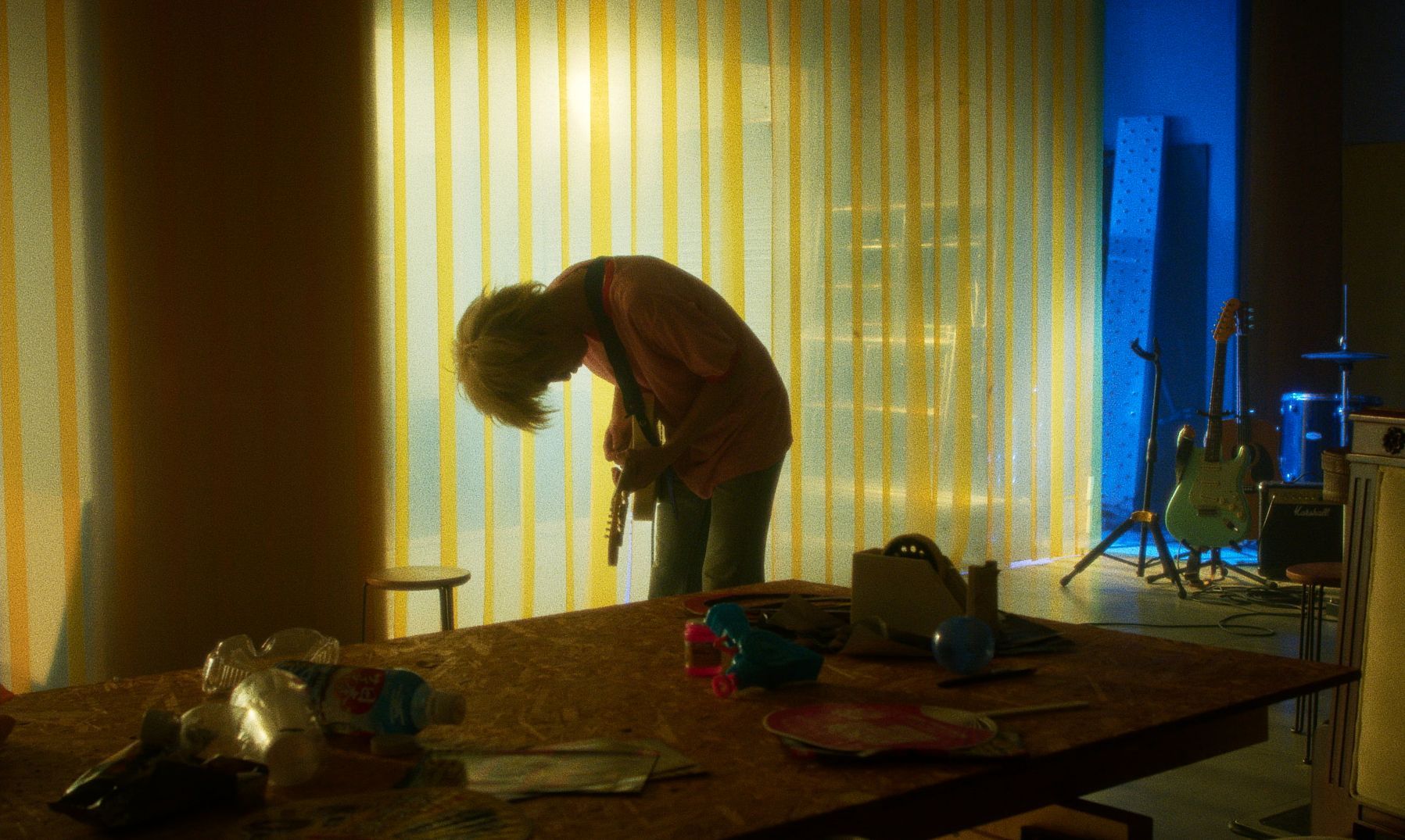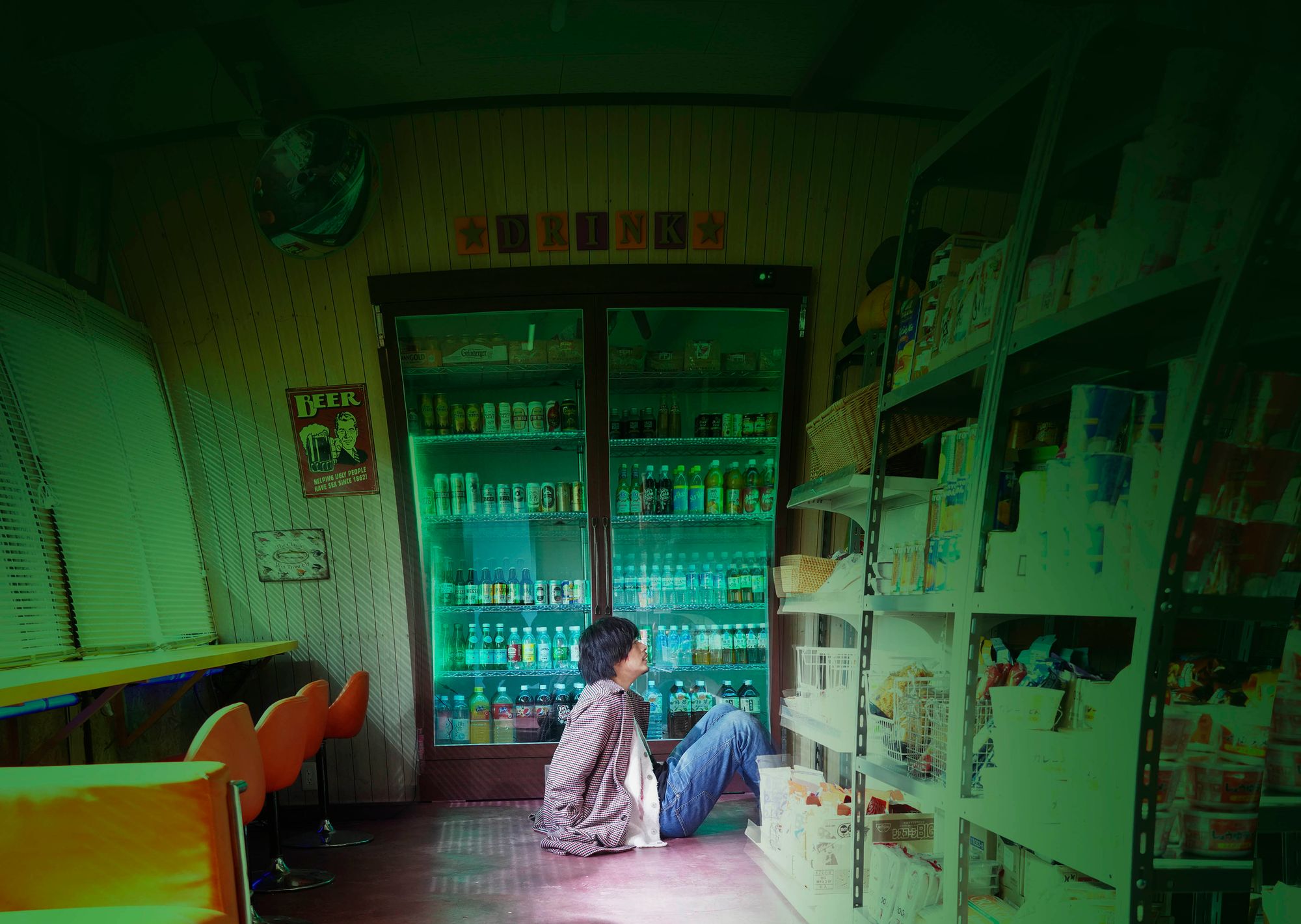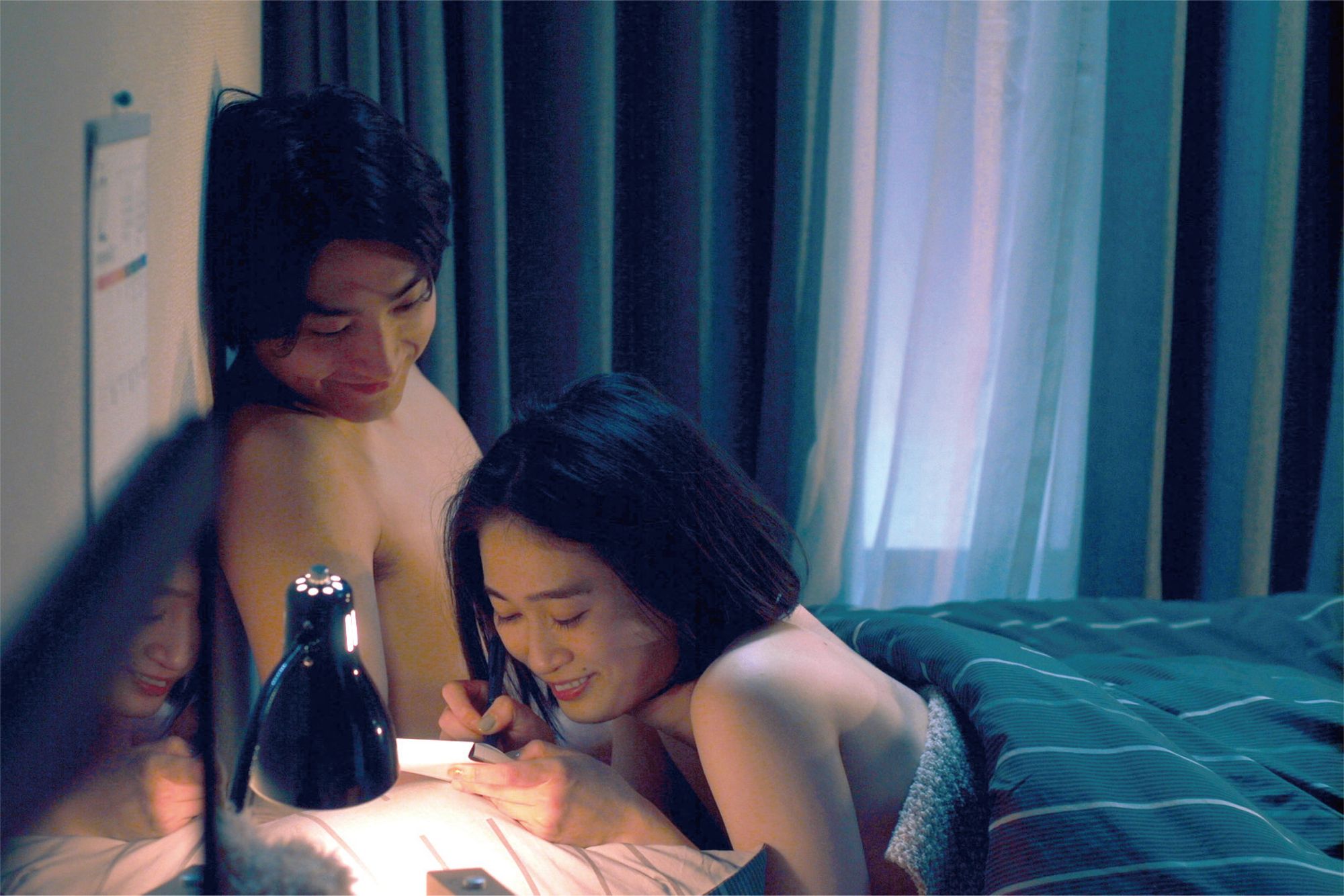Japan Cuts 2023 - Part Two

One of the fun things about a smaller festival like Japan Cuts is that most of the movies playing there are ones I haven’t heard anything about before hand. I’ve got to pick and choose what I watch based on a brief synopsis and a list of filmmakers. Of the four films in this dispatch, three were by directors I recognized: Saga Saga, by Natsuto Aimi, Hand by Matsui Daigo, and Plastic, by Miyazaki Daisuke. Somewhat ironically, the fourth film, Convenience Story, was made by the most experienced director, Miki Satoshi, one whom I’d never heard of before, though he’s in his 60s and has been making movies for at least 20 years. His film does feature an actress I know though, Maeda Atsuko, who was brilliant a few years ago in Kurosawa Kiyoshi’s To the Ends of the Earth. The fact that I liked the films I chose based on their director more than the film I picked based on an actress should not necessarily be taken as conclusive proof of the usefulness of auteur theory, but it certainly doesn’t hurt.

Convenience Story has what seems like a promising premise: a struggling screenwriter gets sucked into an alternate dimension through the wall of a convenience store. On the other side he meets a woman (Maeda) and her weird but decent husband. From that point on, something like The Postman Always Rings Twice plays out, though with all the psychotic misanthropy swapped out for indie movie quirkiness. In the meantime, the screenwriter’s girlfriend, an aspiring actress, continues on in the real world in some sequences that find as much creepiness as humor in the film industry. The two plot-lines don’t really come together in a satisfying way, and neither the writer nor the actress are particularly likable. Worst of all though is that the film is just hideous to look at: everything graded to a sickly yellow or green, like it’s a Hollywood movie set in Latin America. Despite that, there are some striking sequences and images. It’s a movie of too many and yet also not enough ideas.

Natsuto Aimi’s Saga Saga also has a lot of ideas, and some trouble tying them all together, but on the whole it’s much more satisfying, if a bit less adventurous. A departure from her debut feature, Jeux de plage, a Rohmerian/Hongian vacation comedy that was one of my favorite films at Japan Cuts 2019, Saga Saga is an expansive drama of loneliness, following the intersecting lives of a number of women, a few of whom seem to share a father and/or a boyfriend. In this it’s somewhat reminiscent of Heiward Mak’s Fagara, but where that film took a more conventional approach to exploring three women’s coming to terms with their father’s death, Saga Saga takes the long way around everything, locating us instead, slice of life style, in the specific environments where the women live and work. Most of the relationships between the women reveal themselves slowly, to us as well as to them, the film accumulating detail bit by bit such that, by the end, (most) everything becomes clear. Matsui Rena anchors the film as a former actress who moves back to her hometown of Saga. There she meets her teenaged half-sister (Kurashima Sara) and a woman who has kind of been stalking both her and her sister, played with a shy sweetness and just a little bit of unhinged menace by Okazaki Sae. All three actresses are terrific and they’re joined by an ensemble of girlfriends and older family members and, pointedly, only one boy of note. If Jeux de plage was Natsuto paying homage to her favorite French filmmakers, then Saga Saga seems inspired no less ambitiously by the New Taiwan Cinema, the films of Edward Yang specifically. If Natsuto lacks Yang’s precision, both in composition (the slice of life mode requires more naturalism than Yang’s careful frames would allow for) or in structure (not everything comes together as well as it should, at least on first viewing), that can be forgiven.

I quite liked Matsui Daigo’s Just Remembering when I saw it last year as part of the Fantasia Film Festival. A structurally clever (the plot moves backwards through time) romance about two people who love Night on Earth, it played like a poppier version of a Jim Jarmusch movie. So I’ve got to admit I was more than a little taken aback, not necessarily in a bad way, by his Hand, an homage to the classic pink film genre (softcore porn films used as training grounds for new directors and/or camouflage for artistically or politically experimental filmmaking). Gone is the lightness of touch he showed in the earlier film. Instead, Hand is a melancholy character study of a young woman (Fukanaga Akari) who falls into a relationship with a coworker. It all goes great until it doesn’t. Awkwardly tacked onto this is the woman’s preoccupation with older men: not as sexual objects, but as fascinating ones, cute (she makes scrapbooks about them) in all the pathetic ways they try to hide their age and flirt with her. This is in turn somehow tied into her strained relationship with her father. There are hints of darker edges to this story, but Matsui never follows them up—in the end, it just seems that these are a couple of people who’ve grown distant over time in an ordinary, non-sensational way. That’s fine of course, welcome even given the traditions of the exploitation genre. The problem is that this through-line, her relations with older men, never really jibes with the bulk of the movie, which is a very fine story of young love, from its romantic beginnings to its inevitable end. This is where almost all the sex scenes take place, though the rules of the genre (one every ten minutes) require several more to be added outside the main relationship. These run the gamut from pathetic (awkward hookups with an ex in what looks like a karaoke room) to actually pretty funny (Fukanaga’s character’s sister). Hand’s focus on women’s sexuality and desire is (apparently, I’m no expert on the genre) something of a revision to the classic roman porno, and Fukanaga is great at playing all sides of her complicated character: sweet and charming, sexy and aggressive, sad and wistful. That the movie holds together at all is entirely thanks to her.

Finally, Miyazaki Daisuke’s Plastic was my favorite movie from this year’s Japan Cuts. I saw Miyazaki’s Tourism when it played the festival in 2018, a charming road movie about a pair of women who visit Singapore and get lost and separated in the city but nothing bad happens to them. Plastic stars Ogawa An, who I saw earlier this year in There is a Stone, which played at the Berlin Film Festival. She’s was very good in that film and is even better here. Starting in August 2018, she’s a high school student and a big fan of the band Exne Kedy, a Japanese group that played the 1969 Isle of Wight festival (with some Beatles and Bob Dylan in attendance!) and then broke up in 1974. Riding her bicycle down the street one day, joyously singing along to her favorite band, she spies a young guitarist (Fujie Takuma) busking on the side of the road—and playing the exact same song. Running into him again a few days later, she strikes up a conversation and the two begin a relationship. This delightful story of young love takes up the first third of the film, whereupon we skip forward in time to August 2019 and the sad end of their relationship: she’s going away to college, his dreams of rock stardom are going nowhere and his real job prospects aren’t any better. The sad song to the first third’s bouncy opener, this second section is where a lot of films (Hand, to take one example) would end. But instead we keep moving forward in time, to the COVID years, where the kids build new relationships and find new jobs and their old hangouts close because no one shops at record stores anymore and going into a club and taking off your face-mask is the most daring thing a young person can do in the big city in 2021. The music of Exne Kedy runs through it all, gradually shifting in style with the years (the kids always refer to them as glam, but they seem just as much power pop and, later, city pop to me). The film was inspired by a concept album by Ide Kensuke, 2020’s Contact from Exne Kedy and the Poltergeists, credited to Kensuke Ide with His Mothership, and the music is uniformly terrific, either providing background music or sourced on screen by the characters listening on headphones or record players, or playing out in fantasy sequences followed by quick snaps back to reality. There are more and more of these as the film goes along: when we’re kids, music can be fully integrated into our lives; as we get older, overwhelmed by adult concerns, those moments of musical abandon become more and more rare, oases of magic in drab the day-to-day. In the film’s final section, Exne Kedy has reunited for one show only, but our two heroes, once superfans, don’t even hear about it until the show is sold out. Locked out of the arena, the two wander around, singing along to the songs in their head. Will they meet again, as Teresa Teng superfans Leon Lai and Maggie Cheung did 30 years ago in Comrades, Almost a Love Story?
